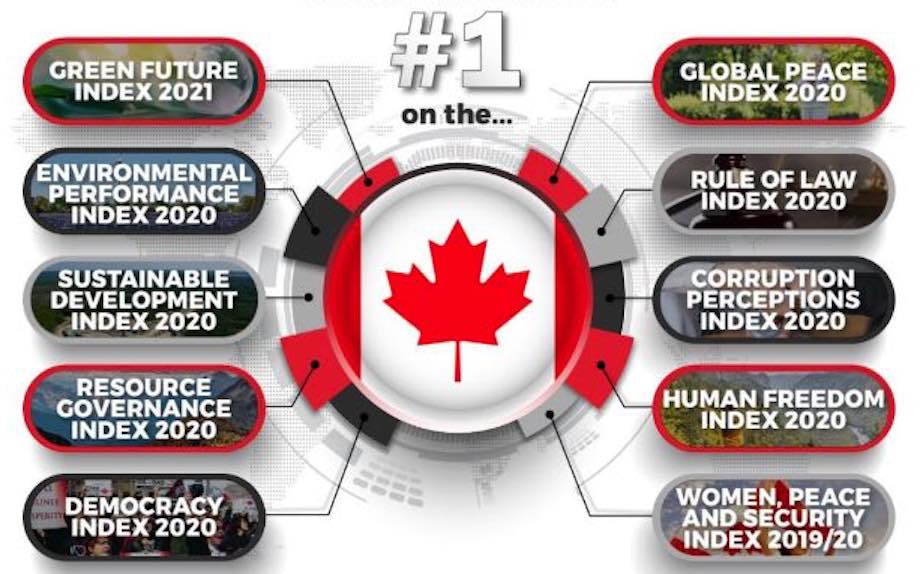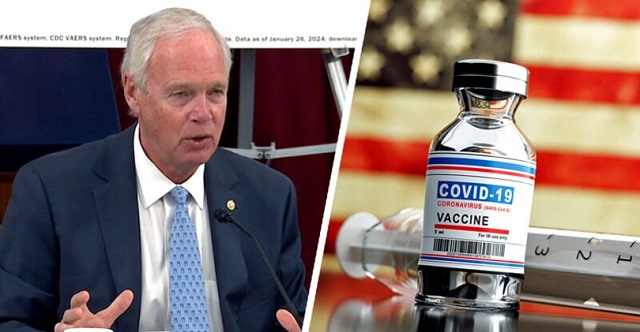Economy
5 Reasons Why Canada Should Be a Global Oil Supplier of Choice

Post Submitted by Canada Action

#1 – Unprecedented Net-Zero Commitment
Canada’s largest oil sands producers just announced an unprecedented commitment to reaching net-zero emissions by 2050!
The net-zero term – used to describe the process of removing all greenhouse gas (GHG) emissions by reduction methods – has become an increasingly important mandate for companies looking to continue attracting investment while participating in the transition to a lower-carbon future.
Accounting for about 90 per cent of oil sands production, the new five-member alliance is just one of many examples of why Canadian producers should be go-to oil suppliers of choice for buyers worldwide.
#2 – Continual GHG Emission Reductions
The emissions intensities of oil sands operations dropped by 36 per cent between 2000 and 2018due to fewer gas venting emissions, technological and efficiency improvements and reductions in the percentage of bitumen upgraded at national refineries says Natural Resources Canada.
Oil sands emissions intensities per barrel are also forecast by IHS Markit to drop another 16 to 23 per cent by 2030 due to continued innovation and technological advancement in the Canadian oil and gas sector.
This matters in an increasingly carbon-constrained world where going “green” has been put at the forefront of investors’ minds around the globe. According to these standards, investment cash should be flowing into Canada in droves for its dedication to the sustainable production of its natural resources such as oil, natural gas and minerals to name a few.
#3 – Leader in Social Progress
Social Progress Imperative lists Canada as seventh out of 163 countries on its Social Progress Index 2020, outranking all other major global oil jurisdictions except Norway. The annual index examines a total of 50 social and environmental indicators across 12 major subcategories, including:
If you value social progress, the choice is clear. Canada ranks number one out of all the world’s top oil producers, exporters and reserve holders except for Norway and should be a global supplier of choice.
#4 – Carbon Pricing in a Carbon-Constrained World
Home to roughly 80 per cent of Canada’s total oil production, Alberta is one of the few global oil jurisdictions with mandatory disclosures, regulated emissions protocols and carbon taxes on excess GHGs.
In 2007, the province also became the first jurisdiction in North America and one of the first in the world just behind the European Union to take climate action with mandatory GHG emission reduction targets for large industrial emitters across all industries.
To add, only 10.5 per cent of global crude oil production is subject to carbon pricing, of which about 40 per cent is accounted for by Canada (with ~4.2 per cent of global output).
Carbon pricing and mandatory GHG emissions protocols matter huge in a carbon-constrained world. Therefore, Canada’s current policies indicate that it should be a choice supplier of oil and gas for decades to come.
#5 – A World-Class Regulatory Environment
Canada’s oil and gas producers are subject to some of the most stringent regulations and governance standards for energy projects anywhere on the planet. It only makes sense that future oil and gas supply comes from highly transparent producers like Canada that practice environmentally conscious extraction and production techniques.
Shutting down Canadian pipelines carrying Canadian oil has not kept one barrel of oil in the ground. What this has accomplished, however, is the displacement of global market share to less environmentally conscious producers who, in many instances, have abysmal records on social progress indicators such as freedom of expression and other basic human rights.
More Oil & Gas in Canada
Canada Should Be a Supplier of Choice
Canada’s proven track record on Environmental, Social and Governance metrics means that we should be a global supplier of choice for oil, gas, minerals, metals, agricultural products, forestry products and everything in between.
Support Canadian resource families and learn more about our world-class natural resource sectors by joining us on Twitter, Instagram and Facebook today. Hope to see you there!
Business
Canada Hits the Brakes on Population

The population drops for the first time in years, exposing an economy built on temporary residents, tuition cash, and government debt rather than real productivity
Canadians have been told for years that population decline was unthinkable, that it was an economic death spiral, that only mass immigration could save us. That was the line. Now the numbers are in, and suddenly the people who said that are very quiet.
Statistics Canada reports that between July 1 and October 1, 2025, Canada’s population fell by 76,068 people, a decline of 0.2 percent, bringing the total population to 41,575,585. This is not a rounding error. It is not a model projection. It is an official quarterly population loss, outside the COVID period, confirmed by the federal government’s own data
The reason matters. This did not happen because Canadians suddenly stopped having children or because of a natural disaster. It happened because the number of non‑permanent residents dropped by 176,479 people in a single quarter, the largest quarterly decline since comparable records began in 1971. Permit expirations outpaced new permits by more than two to one. Outflows totaled 339,505, while inflows were just 163,026
That is the so‑called growth engine shutting down.
Permanent immigration continued at roughly the same pace as before. Canada admitted 102,867 permanent immigrants in the quarter, consistent with recent levels. Births minus deaths added another 17,600 people. None of that was enough to offset the collapse in temporary residency. Net international migration overall was negative, at minus 93,668
And here’s the part you’re not supposed to say out loud. For the Liberal‑NDP government, this is bad news. Their entire economic story has rested on population‑driven GDP growth, not productivity. Add more people, claim the economy is growing, borrow more money, and run the national credit card a little harder. When population growth reverses, that illusion collapses. GDP per capita does not magically improve. Housing shortages do not disappear. The math just stops working.
The regional numbers make that clear. Ontario’s population fell by 0.4 percent in the quarter. British Columbia fell by 0.3 percent. Every province and territory lost population except Alberta and Nunavut, and even Alberta’s growth was just 0.2 percent, its weakest since the border‑closure period of 2021
Now watch who starts complaining first. Universities are already bracing for it. Study permit holders alone fell by 73,682 people in three months, with Ontario losing 47,511 and British Columbia losing 14,291. These are the provinces with the largest university systems and the highest dependence on international tuition revenue
You’re going to hear administrators and activists say this is a crisis. What they mean is that fewer students are paying international tuition to subsidize bloated campuses and programs that produce no measurable economic value. When the pool of non‑permanent residents shrinks, departments that exist purely because enrollment was artificially inflated start to disappear. That’s not mysterious. That’s arithmetic.
For years, Canadians were told that any slowdown in population growth was dangerous. The truth is more uncomfortable. What’s dangerous is building a national economic model on temporary residents, borrowed money, and headline GDP numbers while productivity stagnates. The latest StatsCan release doesn’t just show a population decline. It shows how fragile the story really was, and how quickly it unravels when the numbers stop being padded.
Subscribe to The Opposition with Dan Knight
Business
White House declares inflation era OVER after shock report

The White House on Thursday declared a decisive turn in the inflation fight, pointing to new data showing core inflation has fallen to its lowest level in nearly five years — a milestone the administration says validates President Donald Trump’s economic reset after inheriting what it calls a historic cost-of-living crisis from the Biden era. In a statement accompanying the report, White House Press Secretary Karoline Leavitt said inflation “came in far lower than market expectations,” drawing a sharp contrast with the 9 percent peak under President Joe Biden and arguing the numbers reflect sustained relief for American households. “Core inflation is at a new multi-year low, as prices for groceries, medicine, gas, airfare, car rentals, and hotels keep falling,” Leavitt said, adding that lower prices and rising paychecks are expected to continue into the new year.
According to the White House, core inflation — widely viewed by economists as the most reliable gauge because it strips out volatile food and energy costs — is now down roughly 70 percent from its Biden-era high. Officials noted that if inflation continues at the pace of the last two months, it would be running at an annualized rate of about 1.2 percent, well below the Federal Reserve’s 2 percent target. The report also highlighted broad-based price moderation across consumer staples and services, with declines in groceries, dairy, fruits and vegetables, prescription drugs, clothing, airfares, natural gas, car and truck rentals, and hotel prices. Average gas prices have fallen to multi-year lows, while rent inflation has dropped to its lowest level since October 2021, a shift the administration attributes in part to tougher enforcement against illegal immigration and reduced pressure on housing demand.
Wages, the White House says, are rising alongside easing prices. Private-sector workers are on track to see real wages increase by about $1,300 in President Trump’s first full year back in office, clawing back purchasing power lost during the inflation surge of the previous administration. Gains are strongest among blue-collar workers, with annualized real earnings up roughly $1,800 for construction workers and $1,600 for manufacturing employees. Administration officials also took aim at critics who warned Trump’s tariff policies would reignite inflation, arguing the data shows no demonstrable inflationary impact despite repeated predictions from Wall Street and academic economists.
NEC Director Kevin Hassett on the latest inflation report: "It was just an absolute blockbuster report… We looked at 61 forecasts, and this number came in better than every single one of them." 🔥 pic.twitter.com/rBJpkmjuNa
— Rapid Response 47 (@RapidResponse47) December 18, 2025
Even commentators across the media spectrum acknowledged the strength of the report. CNBC’s Steve Liesman called it “a very good number,” while CNN’s Matt Egan said it was “another step in the right direction.” Harvard economist Ken Rogoff described the reading as “a better number than anyone was expecting,” adding, “There’s no other way to spin it.” Bloomberg’s Chris Anstey noted the figure came in two-tenths below the lowest estimate in a survey of 62 economists, calling it “remarkable,” while The Washington Post’s Andrew Ackerman wrote that inflation “cooled unexpectedly,” easing pressure on household budgets.
For the White House, the message was blunt: the inflation era is over. Officials framed Thursday’s report as proof that Trump has followed through on his promise to defeat the cost-of-living crisis he inherited, laying what they called the groundwork for a strong year ahead. As the president told the nation this week, the administration insists the progress is real — and that, in his words, the best is yet to come.
-

 Alberta2 days ago
Alberta2 days agoDanielle Smith slams Skate Canada for stopping events in Alberta over ban on men in women’s sports
-

 International2 days ago
International2 days agoTOTAL AND COMPLETE BLOCKADE: Trump cuts off Venezuela’s oil lifeline
-

 Crime2 days ago
Crime2 days agoThe Uncomfortable Demographics of Islamist Bloodshed—and Why “Islamophobia” Deflection Increases the Threat
-

 Daily Caller13 hours ago
Daily Caller13 hours ago‘Almost Sounds Made Up’: Jeffrey Epstein Was Bill Clinton Plus-One At Moroccan King’s Wedding, Per Report
-

 COVID-192 days ago
COVID-192 days agoSenator Demands Docs After ‘Blockbuster’ FDA Memo Links Child Deaths To COVID Vaccine
-

 Business1 day ago
Business1 day agoCanada Hits the Brakes on Population
-

 COVID-192 days ago
COVID-192 days agoChina Retaliates Against Missouri With $50 Billion Lawsuit In Escalating Covid Battle
-

 International2 days ago
International2 days agoBondi Beach Shows Why Self-Defense Is a Vital Right





